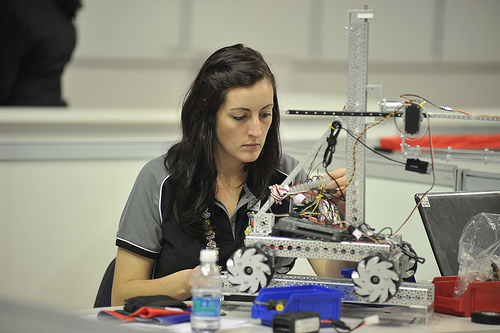29 October 2015
WorldSkills Standards - A rich past and exciting future

In 1950, the first International Vocational Training Competition was held in Spain - including participation of 12 young skilled workers from Portugal and Spain. Fast forward 65 years, to 2015 and WorldSkills has 75 Member countries and regions, more than 15,000 Champions, and the recent WorldSkills Competition featuring 50 skills. Today the WorldSkills movement, with a vision embracing projects beyond the Competition, is committed to improving our world with the power of skills!
Over the years and along with welcoming growing numbers of Members committed to improving - overall - the quality of skills development programmes worldwide, WorldSkills has been laser-focused on ensuring that the quality of its Competitions and the standards and specifications of Competition skills are excellent by world-class industry and education measures. This has never been truer than now, when WorldSkills is positioned to be the global face of 21st Century skills. WorldSkills Experts play a pivotal role - as they have in our past and they will for our future. We all recognize Experts as having experience in a skill, trade, or technology and representing a Member in the skill competition related to their particular expertise. Many of the men and women who are today's Experts initially became involved with WorldSkills as Competitors. They have continued to develop expertise in their own skill, and they have continued their involvement with WorldSkills. Experts bring mentoring and training to Competitors; they develop Test Projects and marking schemes; and talented and committed Experts play an absolutely critical role in making WorldSkills the home of best practice and development. We depend on the wisdom, experience, volunteerism, and dedication of Experts.
WorldSkills Experts are now working with the WorldSkills Standards Specifications. A huge "THANK YOU" to Experts for the fact that 43 of the 50 Competitions at WorldSkills São Paulo 2015 accurately reflected the standards in the Test Projects and marking schemes - a "superb performance," says Jenny Shackleton, assessment advisor to WorldSkills. In addition to this significant achievement, there is a new seriousness of discussion about the direction of the global economy and labour markets, and the impact of this on vocational education and training. The WorldSkills Standards Specifications ensure that the WorldSkills Competition reflects global occupations and work roles in a relevant, authentic, and consistently useful way. They bring together the specialist, technical, and high-level generic skills that give a platform for excellence at work today - as well as in the fast-moving labour markets of tomorrow. Proposed by WorldSkills Experts and endorsed by leading industry and business worldwide, they represent the close partnership that is the lifeblood of skills development, vocational education and training, and successful economies and societies.
Using universally recognized methods, the WorldSkills Standards Specifications offer a benchmark for skills development, and for vocational education and training systems worldwide. Work is ongoing to ensure that assessment, through the Test Projects, genuinely reflects real working life: its settings, purposes, processes, and outcomes, now and for the future. This is only possible because the WorldSkills community has confidence in its Experts' responsiveness and commitment to raising the value of what we do together to raise the profile and recognition of skilled people, and show the importance of skills for economic growth and personal success.